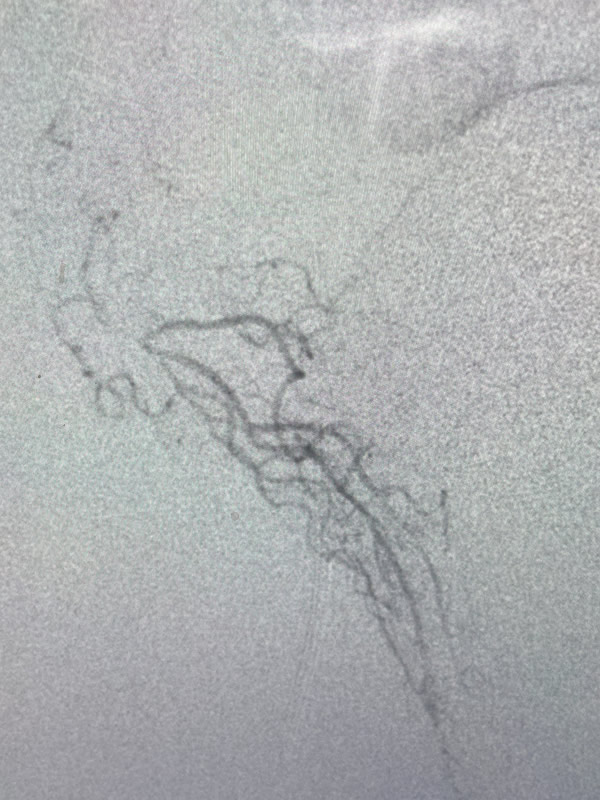Hemorrhoid Treatment in Columbia, MO
Hemorrhoids are swollen veins in the anus and rectum that can cause pain, itching, and bleeding. Traditional treatments for hemorrhoids often involve invasive procedures, such as surgery or rubber band ligation. However, there is a less invasive option available: hemorrhoid artery embolization (HAE).
What is Hemorrhoid Artery Embolization (HAE)?
HAE is a procedure that involves blocking the blood supply to hemorrhoids. This causes the hemorrhoids to shrink and reduces symptoms. HAE is performed by an interventional radiologist who uses image-guided techniques to deliver embolization material to the hemorrhoidal arteries.
Benefits of HAE:
HAE offers a less invasive and more comfortable alternative to traditional hemorrhoid treatments. It provides effective relief from hemorrhoid symptoms while preserving your overall quality of life.
Minimally invasive
HAE is a minimally invasive procedure that involves a small incision in the groin. This means a shorter recovery time, less pain, and a lower risk of complications compared to traditional surgery.
Effective treatment
HAE is highly effective in reducing hemorrhoid symptoms, such as bleeding, pain, and itching.
Quick recovery
Most patients are able to return to their normal activities within a few days of the procedure.

What to Expect During HAE:
HAE is typically performed as an outpatient procedure. You will be given anesthesia to ensure your comfort during the procedure. During HAE, a specialized catheter is inserted through a small incision in the groin. The catheter is guided to the arteries supplying the hemorrhoids, and small coils and particle beads are deposited. This blocks the blood supply to the hemorrhoid causing it to shrink and stop bleeding. The procedure typically takes 30-60 minutes.
Recovery from HAE:
HAE is typically performed as an outpatient procedure, allowing you to return home the same day. Recovery time is generally short, and most people are able to resume their normal activities within a few weeks.
